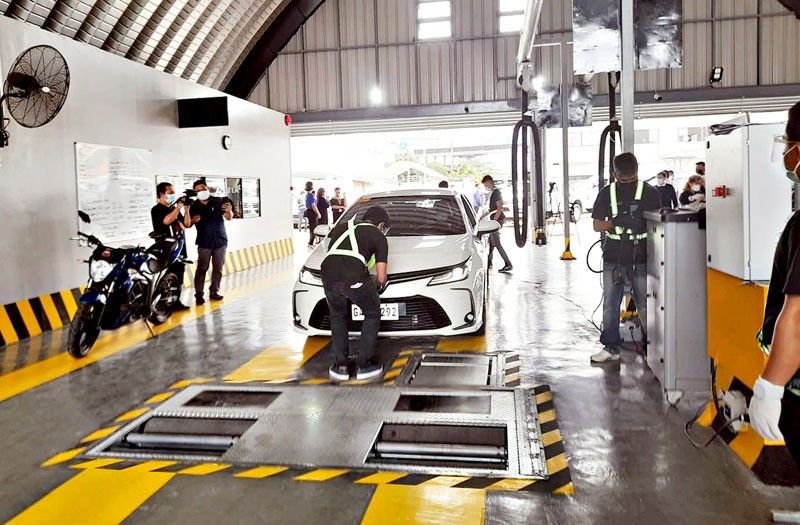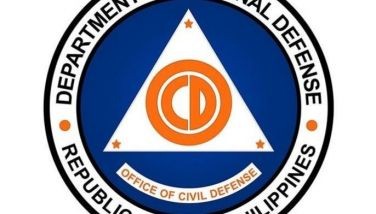LTO won’t suspend new vehicle inspection system

MANILA, Philippines — After sparking public uproar and the prospect of a Senate investigation, motor vehicle inspection criticized as added burden to the public already reeling from the pandemic will remain a requirement for renewal of vehicle registration, Land Transportation Office (LTO) chief Edgar Galvante said yesterday.
Galvante made his position clear at a briefing when asked if the controversial requirement, contained in LTO Memorandum Circular No. 2018-2158, would be suspended.
“At this point, no, because that’s our way of finding out if registration of a vehicle can be renewed,” he said in Filipino at a briefing.
Sen. Grace Poe, who chairs the Senate committee on public services, has filed a resolution seeking a review of LTO memorandum circulars on the implementation of a rule requiring roadworthiness test at private motor vehicle inspection centers (PMVIC) as requirement for renewal of registration.
She noted that the enforcement of the system comes at the worst time as people are grappling with financial troubles amid the pandemic. She said the new system has almost doubled the usual registration fees.
PMVICs are authorized to collect an inspection fee of P1,800 for motor vehicles weighing 4,500 kilograms or less. A re-inspection fee of P900 will be charged if the vehicle fails the initial test.
Galvante has repeatedly defended the PMVIC system.
He said motor vehicle inspections have long been a standard in the country, but have now been turned over to the private sector as the government currently lacks the facilities to undertake the task.
LTO used to perform motor vehicle inspections but its equipment had already become obsolete.
Galvante said that the public should report to the LTO any case of corruption involving PMVICs.
He said erring private vehicle inspectors face suspension or cancellation of license to operate.
The Vehicle Inspection Center Operators Association of the Philippines (VICOAP), for its part, defended the amount of inspection fees collected from vehicle owners.
VICOAP president Iñigo Larrazabal said PMVIC test rates of P1,500 plus value added tax for an automotive vehicle and P600 for motorcycles are “a bargain to protect our families.”
“You are paying P4 a day for those who have light vehicles, and P1.80 a day for those who have motorcycles. The increase in testing fees reflects the increased work we have to do to ensure that only the safest of vehicles are allowed on the roads. We cannot put a price on human lives,” Larrazabal said.
Compared to emission testing that costs P450 to P500, VICOAP said that PMVICs charge higher fees because they conduct more tests.
“What we are doing is transparency through technology. We have a 70-point testing system that will check the roadworthiness of your car when you register it. We test many things from seatbelts, brakes to headlights,” VICOAP internal vice president Benson So said.
Less or zero corruption
There is little or no opportunity for corruption under the current vehicle testing system, VICOAP said amid reports that motorists are resorting to LTO fixers to avoid the hassle in vehicle registration.
“We are constantly gathering data across the entire inspection process – data which can reveal any statistical anomalies that would point to corruption. And because some parts of the process are automated, we know that they cannot be tampered with. In other cases, we can review the data in vulnerable areas to identify any patterns of abuse so we can then act accordingly,” Larrazabal said.
He said the country needs to upgrade current testing methods by using modern technology that brings a higher degree of accuracy and transparency.
“We aspire to be the premiere country when it comes to road safety. The program for improving testing for roadworthiness has been long overdue, and we can catch up by starting operations as soon as possible,” he said.
In Pangasinan, the Dagupan City council has passed a resolution appealing to President Duterte, through Transportation Secretary Arthur Tugade, to cause the revocation of LTO Memorandum Circular No. 2018-2158 requiring vehicle roadworthiness test as part of registration process.
“In view of the economic hardships faced by the public still struggling to recover from the effects of COVID-19 pandemic, this is not the proper time to implement a new vehicle testing program whose prescribed charges and fees, nearly thrice as expensive as the existing emissions testing procedure, are found to be grossly exorbitant,” the resolution authored by Councilor Jose Netu Tamayo read.
It added that motoring groups and private individuals in Dagupan and the rest of the province of Pangasinan also “bewail the lack of transparency since no genuine consultation has been conducted prior to the formulation of the guidelines.”
Meanwhile, the House of Representatives is set to revisit the Child Safety in Motor Vehicles Act amid mounting objections to the enforcement of the program by the LTO.
Samar Rep. Edgar Mary Sarmiento, chair of the committee on transportation, said a hearing would be held on Feb. 10 to tackle the implementation of the new policy that would add to financial burden of car owners at this time of pandemic.
“We will look into the IRR (implementing rules and regulations) and see if this was really well thought of,” he explained in an interview yesterday.
Sarmiento further bared that the panel would look into the creation of the Private Motor Vehicle Testing Center, which has “raised many issues.”
Officials of LTO, Land Transportation Franchising and Regulatory Board and Department of Transportation (DOTr), as well as stakeholders in the land sector, are invited to the hearing.
Speaker Lord Allan Velasco authorized the investigation to be conducted pursuant to an existing resolution.
The DOTr recently decided to defer the implementation of the policy under Republic Act 11229, as it finalizes guidelines for enforcing the law.
It also cited the pandemic as another reason for the postponement of the implementation.
Under the law, children up to age 12 and shorter than 4’11’’ are required to use car seats.
The LTO said it would not apprehend violators for six months or until around August, adding it would prioritize educating drivers and parents by distributing flyers regarding the mandatory car seat for children. – Edu Punay, Eva Visperas
- Latest
- Trending



























